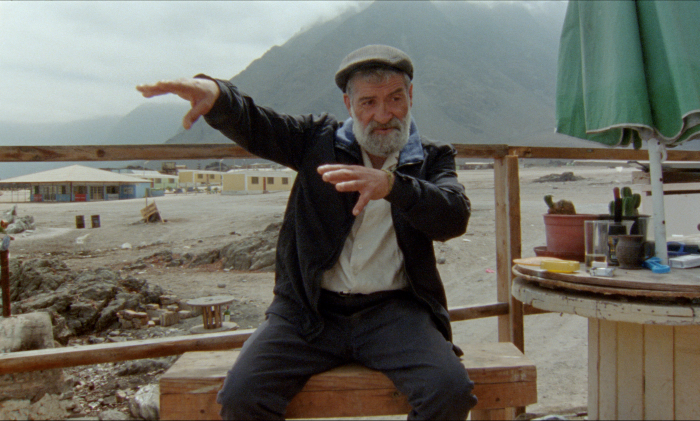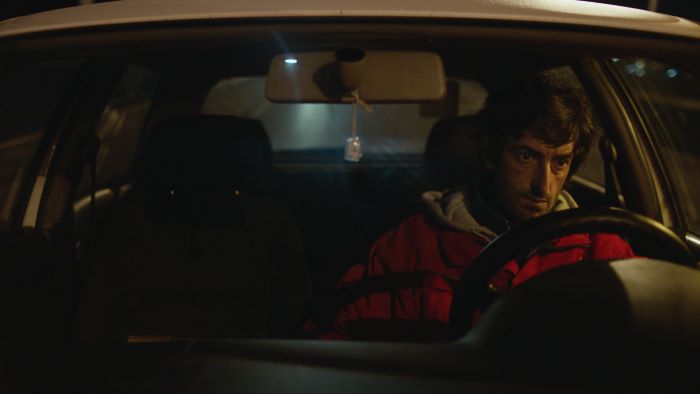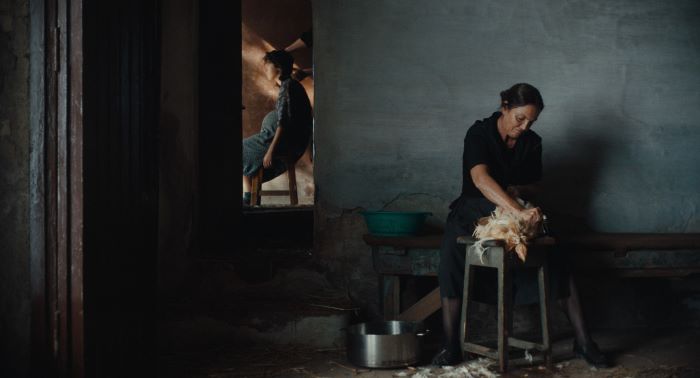The chance to discover new voices in today’s cinematic landscape makes the New Directors/New Films series one of the essential early stops on the annual festival circuit. In partnership with the Museum of Modern Art and the Lincoln Center, the 53rd edition provides a space to see cinema through fresh perspectives, with films that may take a while before getting commercial distribution. Within the wide and varied titles, it’s worth focusing on some of the Hispanic cinema offerings present this year, all of which augur an attractive future for their directors.
Documentary and fiction merge as a peculiar amoral X-ray of criminal life and a playful historical examination of a notorious robbery in Otro Sol (Another Sun), the debut of Chilean director Francisco Rodríguez Teare. Onscreen legal documents, voice-overs, and testimonials delve into an old mystery: how two Chilean thieves in 1978 managed to robs from the Cathedral of Cádiz in Spain. However, Teare seems to care little about investigating how the robbery was carried out, or the whereabouts of the stolen treasure, and more on exposing how seductive facts become legends that continue to be told, and to some extent admired examples to follow (in what could perhaps be interpreted as a self-criticism about Chilean society). After a while, it becomes clear that the documentary section is a riddle that asks the audience to question the truthfulness of such stories, even when they have been well documented.
The more prominent fictional storyline of Otro Sol focuses in the supposed present day where two friends (Iván Cáceres and Thomas Quevedo) search for the uncle of one of them. The relative might be or not one of the thieves involved in the cathedral case. He’s now an old man telling stories of his golden age as a thief (and murderer) without any remorse. The young men are interested in the possibility of locating the treasure, presumed to be buried in the desert, but they won’t be the only ones, as the old man’s neighbors also know his story of the heist.
Shot on 16 mm film, the rugged beauty of the Atacama Desert does not hide the tedium and danger of a place where many go in search of gold—as recalled by the tales of miners at the film’s beginning—and not live to tell their tale. Teare dispenses with any staging of graphic violence but creates, by contrast, a film that feels subtly dark in its aim, to denounce the malignant and lethal essence of greed, in which no kind of fraternity or loyalty survives. Conversation casually refer to horrible deeds or betrayals ready to take place at the slightest opportunity. The result is narratively frustrating in its lack of conclusion, but it reminds us of aspects of human nature that are more common than we would like to admit.
With a slightly more established career in Europe, but still not well known, Spanish director Alberto Gracia presents his third feature The Rim (La Parra), which builds an atmosphere immersive enough to get lost in the labyrinth of a city where it’s easier to enter than to leave. Although Ferrol is a real city in Galicia, the cinematic construction made of it here turns it into a purgatory trapping failed and desperate souls. To this place returns Damian (Alfonzo Miguez), a worn-out, impoverished, and unemployed man who was once famous for winning the jackpot in a television contest (but no trace of that money is left nowadays), after receiving the news that his father has passed away. Upon his return to his hometown, he is continually mistaken for someone named Cosme.
The Rim presents two parallel narratives. The second involves the actual Cosme, whose suicide, while he was guiding a group of blind hikers on a mountain, serves as a prologue. The image of the blind seniors guiding each other home is a perfect visual counterpoint to the vicissitudes of a desperate Damian trying to leave Ferrol again. Although this is not exactly a film noir, the movie shares some of that genre’s aura where reality is made strange by the sensation of paranoia and danger, here enhanced by Jonay Armas’s delightful and ready-for-the-dance club soundtrack. A scene where Damian tries to recover his vehicle that has been stolen becomes a tense game of hide-and-seek, partly thanks to the music. The Rim is a challenging work by a director free from the conventions and expectations of contemporary cinema. It may not be for everyone, but for those thirsty for films infused with risk and novelty.
Finally, from Spain comes another debut and one of the festival’s highlights, Laura Ferrés’s The Permanent Picture (La Imatge Permanent), the kind of film that excites and amazes for its ability to approach an over-exploited genre to remind us that cinema can rewrite the rules. In this case, the genre is melodrama. The plot involves the unlikely accidental reunion of a mother who abandoned her daughter. The camera observes the progressive and brief friendship of two woman who have much more in common than they could ever suspect.
The film begins with a pregnant, immature, and rebellious teenager who doesn’t know how to properly care for her daughter after giving birth. It is not specified who the father is or the circumstances, but we can assume it was an unwanted pregnancy. Meanwhile, the girl finally leaves behind the life she knew to start over elsewhere. Decades later, the film focuses on Carmen (María Luengo), a casting director for an advertising agency who has been tasked with finding faces of “real people,” for a political campaign ad. Among the possible candidates is a street vendor named Antonia (Rosa Ortega), with whom Carmen earlier had a violent altercation for taking her photo out on the street without her consent.
With a screenplay co-written by Ferrés and Carlos Vermut and Ulises Porra (directors already known in the Spanish film industry), The Permanent Picture combines the inherent sadness of a melodrama that observes with tenderness and humor the solitude of its two protagonists with a plain and simple austerity that holds back the emotional grandeur commonly expected from the genre. There’s no room for the exquisite artificialities to which directors like Almodóvar have accustomed us to—to whom Ferrer seems to have responded with this Catalan film as the antithesis of such sensibilities.
For a debut, Ferrés surprises with ingenious decisions in staging and editing. This includes a heartbreaking farewell scene that juxtaposes the reflection of two faces in the mirror as if they were one. A film of deceptive memories, manipulated photos, and songs that express what words cannot, The Permanent Picture is sublime and leaves a lasting impression.









Leave A Comment